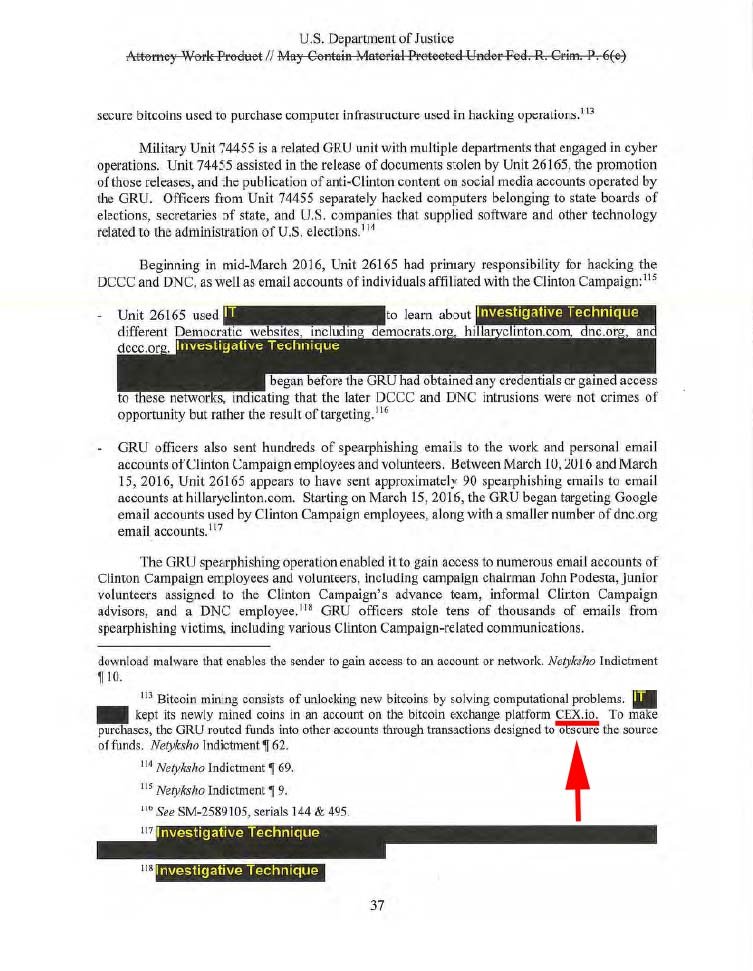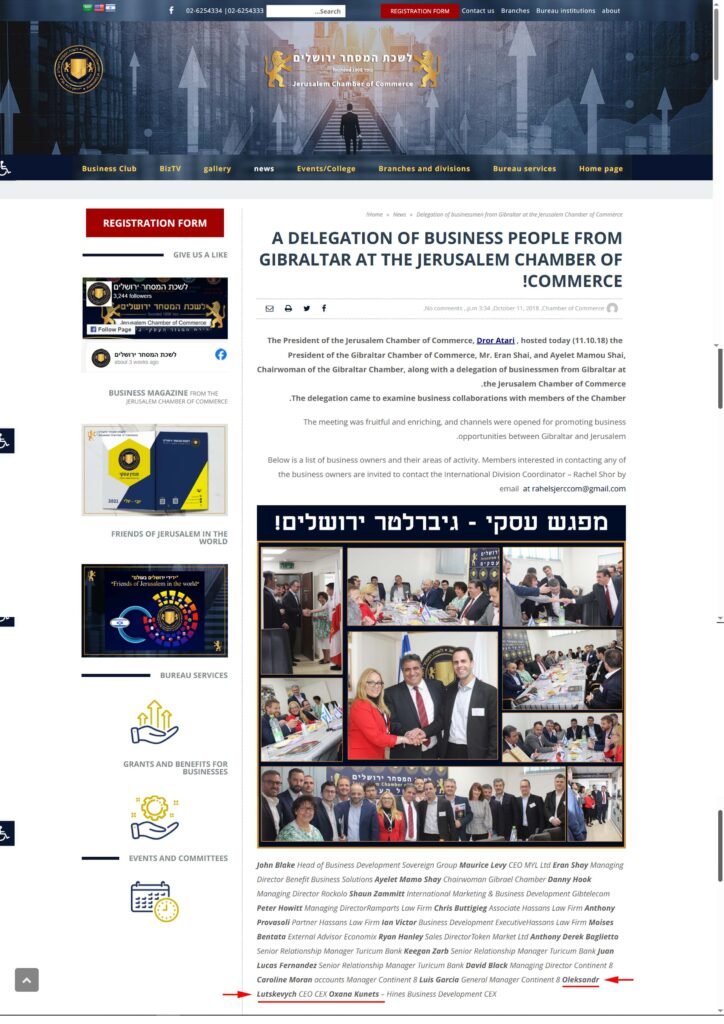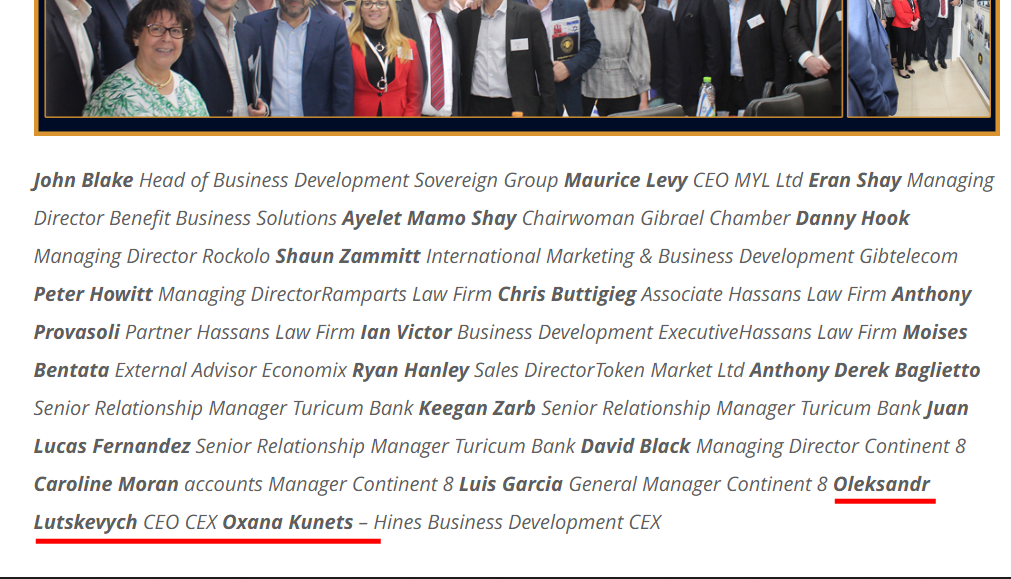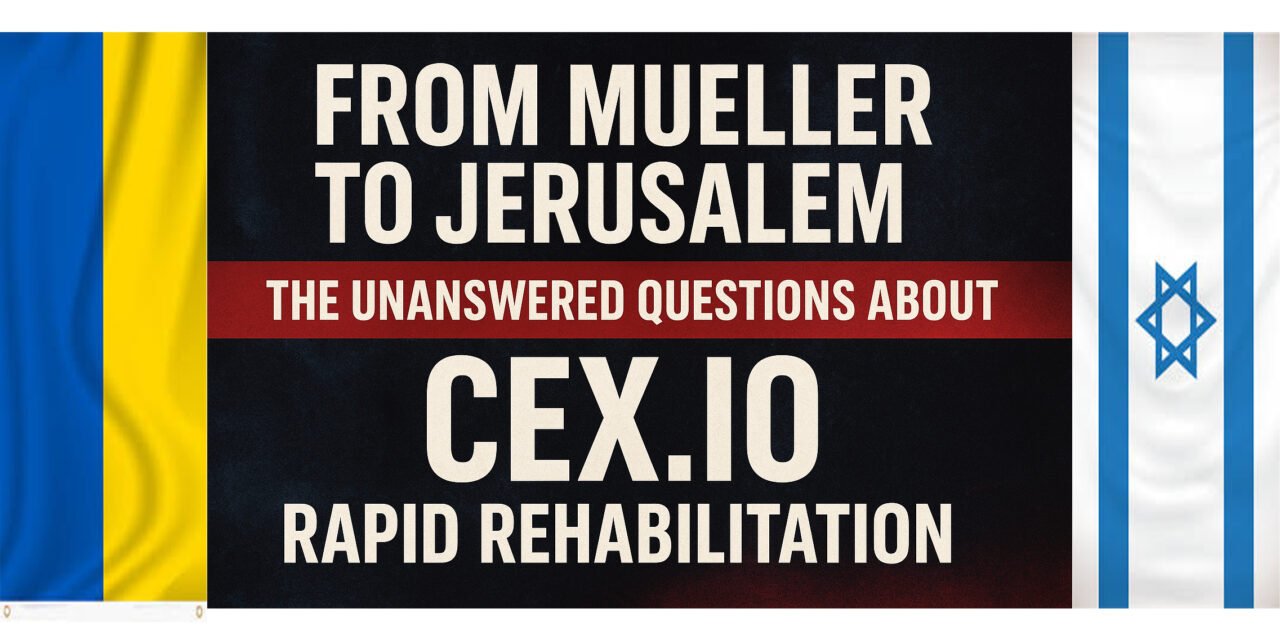When the Mueller Report dropped on July 13, 2018, its indictment of 12 Russian GRU officers dominated global headlines. The officers were accused of orchestrating a massive cyber campaign against the DNC and the Clinton campaign, leaking damaging information during the 2016 U.S. election.
Buried deep in the report — on page 37 — was a single reference that most readers missed: CEX.IO, a London-registered, Ukrainian-owned cryptocurrency exchange with offices in Kyiv. It was the only crypto platform named in the entire Mueller Report, alleged to have been used by Russian military intelligence to store and launder cryptocurrency linked to the hacking operation.

The report noted that other platforms might have been involved, but none were named. That omission alone should have set off alarm bells.

If the Special Counsel’s assessment was accurate, CEX.IO would have been in possession of customer account data tied to GRU operations — information that U.S. law requires to be handed over to federal prosecutors. And because the U.S. shares intelligence with Israel, that data would also have been visible to Israeli agencies.
Three Months Later: A Warm Welcome in Jerusalem

Fast forward just three months. Instead of facing sanctions or regulatory exile, CEX.IO’s CEO Oleksandr Lutskevych and Managing Director for the Americas Oksana Kunets were listed as attendees in a Gibraltar business delegation meeting with the Jerusalem Chamber of Commerce on the 11th of October 2018.
Group photos from the meeting omit the CEX.IO executives, but the official Chamber of Commerce event page explicitly names them as present.
A whistleblower familiar with the matter later claimed:
“It was all fixed. We just needed to be quiet for a while.”
That statement potentially explains both the missing faces in the group photo and why the coverage appeared only on the Chamber’s own website — with no broader publicity at the time.

Both CEX.IO’s CEO Oleksandr Lutskevych and Managing Director for the Americas Oksana Kunets but do not appear in the group photo


The Tulsi Gabbard Factor
Adding to the intrigue, former U.S. Congresswoman Tulsi Gabbard has since stated that U.S. intelligence believed at the time that Russia or Russian actors were incapable of materially interfering in the 2016 election.
If true, this raises the possibility that CEX.IO’s naming in the Mueller Report was less about airtight evidence and more about reinforcing a political narrative.
Two Possible Scenarios
Scenario One
CEX.IO fully cooperated with U.S. prosecutors, handing over sensitive client data connected to the GRU. Israeli intelligence was aware of this cooperation, and the company was rewarded with political “rehabilitation,” allowing elite networking in Israel and preferential market access.
Scenario Two
CEX.IO worked quietly with certain U.S. officials to bolster the public narrative of Russian interference in order to weaken President Trump’s first term. In exchange, the company received protection and fast-tracked entry into influential Israeli business and political circles.
Either way, their presence in Jerusalem so soon after the Mueller Report was no coincidence.
Why Scenario Two Fits Better
Several factors make Scenario Two — political cooperation in exchange for protection — the more likely explanation:
- Politically Compromised Sources
The Mueller Report leaned on the Steele dossier, later exposed as a partisan document funded by the Clinton campaign and the DNC. Multiple investigations, including those by the DOJ Inspector General, found it contained unverified or false claims. - U.S. Intelligence Doubts
Tulsi Gabbard’s statement suggests intelligence agencies themselves didn’t believe Russia could meaningfully alter the 2016 outcome — making CEX.IO’s inclusion suspect. - Lack of Public Cooperation Record
If this was a straight cooperation case (Scenario One), some record of compliance or contrition would likely exist. Instead, the whistleblower’s “stay quiet” comment aligns with a deliberate low-profile strategy. - Political Climate of 2018
In the run-up to the midterms, the Russian interference narrative was politically valuable. Naming CEX.IO as a GRU-linked exchange reinforced the perception of an active foreign threat.
An AIPAC-Style Playbook?
The optics resemble U.S. political practice, where new members of Congress are whisked to Israel on all-expenses-paid trips sponsored by pro-Israel groups, gaining high-level access.
CEX.IO’s Jerusalem trip appears to have been the corporate equivalent — a scandal-shadowed company suddenly given a red-carpet networking opportunity, despite being under the cloud of a federal indictment mention.
Why This Matters for Investors and Regulators
If Mueller’s allegation was correct, CEX.IO was either grossly negligent or actively complicit in GRU operations. Yet it avoided sanctions, was allowed to trade with no licence, and even expanded its influence.
In the UK, the Financial Conduct Authority (FCA) has repeatedly allowed CEX.IO to operate via loopholes, such as its partnership with Gateway 21, an FCA-approved entity shielding it from direct scrutiny.
The Unanswered Questions
- Why has CEX.IO never issued a public defence against the Mueller allegations?
- Why did the Main Stream Media never shine a light on CEX.IO, a company allowing Russian GRU to undermine the US democracy.
- Why did Israeli institutions meet with its leadership while those allegations were unresolved?
- Why was the whistleblower’s “quiet period” seemingly part of an orchestrated strategy?
Conclusion
CEX.IO’s path from being named in one of the most politically explosive U.S. indictments to mingling with Jerusalem’s elite within three months is not the story of a company that simply survived bad press. It’s the story of an entity that appears to have been shielded, facilitated, and strategically repositioned in ways most companies could never dream of.
Whether through an intelligence-level quid pro quo or as a willing participant in sustaining a political narrative, one fact is clear: the normal rules didn’t apply.
The collapse of key Russiagate pillars — from the Steele dossier’s discreditation to Tulsi Gabbard’s revelation of U.S. intelligence assessments — makes it harder to see CEX.IO’s story as chance. Instead, it looks like a calculated arrangement where geopolitical objectives outweighed transparency, due process, and investor protection.
Until regulators, intelligence bodies, or elected officials demand full disclosure, the questions around CEX.IO will remain — a reminder that when politics, intelligence, and finance collide, truth is often the first casualty.





